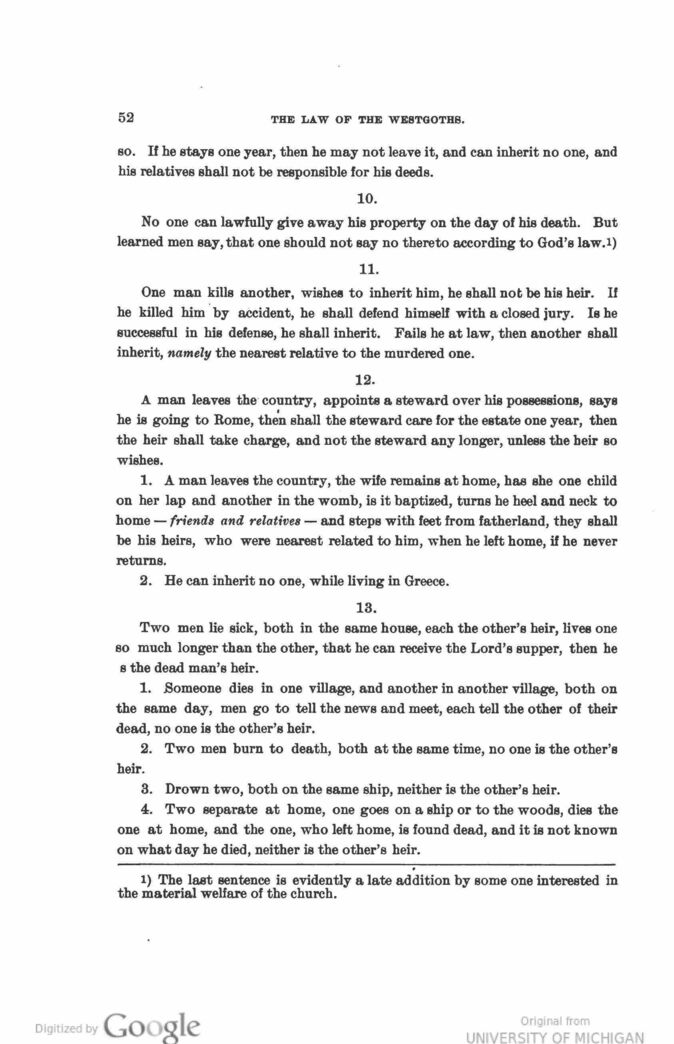
Full resolution (JPEG) - On this page / på denna sida - Sidor ...

<< prev. page << föreg. sida << >> nästa sida >> next page >>
Below is the raw OCR text
from the above scanned image.
Do you see an error? Proofread the page now!
Här nedan syns maskintolkade texten från faksimilbilden ovan.
Ser du något fel? Korrekturläs sidan nu!
This page has never been proofread. / Denna sida har aldrig korrekturlästs.
52
THE LAW OF THE WE8TGOTH8.
so. If he stays one year, then he may not leave it, and can inherit no one, and
his relatives shall not be responsible for his deeds.
10.
No one can lawfully give away his property on the day of his death. But
learned men say, that one should not say no thereto according to God’s law.i)
11.
One man kills another, wishes to inherit him, he shall not be his heir. If
he killed him by accident, he shall defend himself with a closed jury. Is he
successful in his defense, he shall inherit. Fails he at law, then another shall
inherit, namely the nearest relative to the murdered one.
12.
A man leaves the country, appoints a steward over his possessions, says
he is going to Rome, then shall the steward care for the estate one year, then
the heir shall take charge, and not the steward any longer, unless the heir so
wishes.
1. A man leaves the country, the wife remains at home, has she one child
on her lap and another in the womb, is it baptized, turns he heel and neck to
home — friends and relatives — and steps with feet from fatherland, they shall
be his heirs, who were nearest related to him, when he left home, if he never
returns.
2. He can inherit no one, while living in Greece.
13.
Two men lie sick, both in the same house, each the other’s heir, lives one
so much longer than the other, that he can receive the Lord’s supper, then he
s the dead man’s heir.
1. Someone dies in one village, and another in another village, both on
the same day, men go to tell the news and meet, each tell the other of their
dead, no one is the other’s heir.
2. Two men burn to death, both at the same time, no one is the other’s
heir.
3. Drown two, both on the same ship, neither is the other’s heir.
4. Two separate at home, one goes on a ship or to the woods, dies the
one at home, and the one, who left home, is found dead, and it is not known
on what day he died, neither is the other’s heir.
l) The laat sentence is evidently a låte addition by some one interested in
the material welfare of the church.
<< prev. page << föreg. sida << >> nästa sida >> next page >>